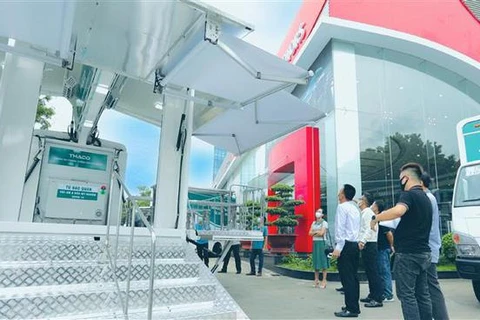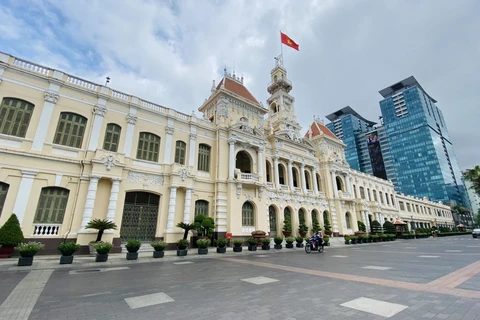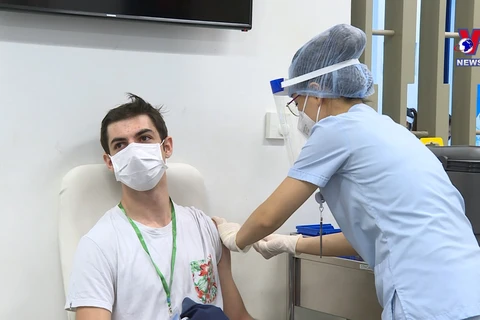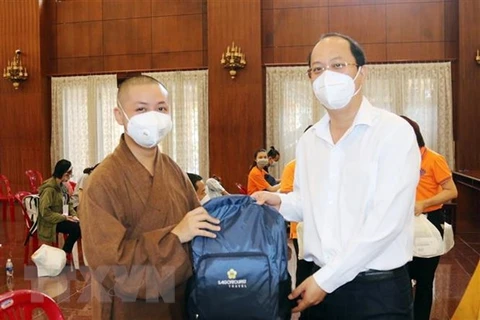HCM City (VNA) – The first mobile medical station debuted at Ward 11, District 3 of Ho Chi Minh City on August 20, aiming to give health care services to COVID-19 patients at home, thus contributing to easing overload in concentrated treatment facilities and hospitals and minimising deaths.
It is the first of 400 mobile medical stations that HCM City has planned to set up across the city, according to Associate Prof. Dr. Tang Chi Thuong, Vice Director of the city Department of Health. Each station takes care of 50-100 COVID-19 patients, he said.
Medical workers at the station will provide health care consultations to patients via telephone and visit them at their homes by motorbike or taxi, while using “Khai bao y te dien tu" (electronic health declaration) app for patient management.
Nguyen Thai, Vice Director of the Medical Centre of District 3, the mobile medical station No.1 has 10 oxygen cylinders, four oxygen concentrator, two SPO2 meters, COVID-19 test kits, and other medical equipment.
It also has a mobile medicine cabinet for both COVID-19 patients and patients suffering common illnesses.
Doctor Le Thi Bao Yen, head of the mobile medical station No.1, said that the station will coordinate with local authorities to contact COVID-19 patients at the area and directly visit them if necessary.
Earlier on August 19, Health Minister Nguyen Thanh Long asked HCM City and other COVID-19 hit localities such as Long An, Dong Nai and Binh Duong provinces to promptly set up mobile medical stations, which are expected to deal with the problem and enable people to access uninterrupted medical services./.
It is the first of 400 mobile medical stations that HCM City has planned to set up across the city, according to Associate Prof. Dr. Tang Chi Thuong, Vice Director of the city Department of Health. Each station takes care of 50-100 COVID-19 patients, he said.
Medical workers at the station will provide health care consultations to patients via telephone and visit them at their homes by motorbike or taxi, while using “Khai bao y te dien tu" (electronic health declaration) app for patient management.
Nguyen Thai, Vice Director of the Medical Centre of District 3, the mobile medical station No.1 has 10 oxygen cylinders, four oxygen concentrator, two SPO2 meters, COVID-19 test kits, and other medical equipment.
It also has a mobile medicine cabinet for both COVID-19 patients and patients suffering common illnesses.
Doctor Le Thi Bao Yen, head of the mobile medical station No.1, said that the station will coordinate with local authorities to contact COVID-19 patients at the area and directly visit them if necessary.
Earlier on August 19, Health Minister Nguyen Thanh Long asked HCM City and other COVID-19 hit localities such as Long An, Dong Nai and Binh Duong provinces to promptly set up mobile medical stations, which are expected to deal with the problem and enable people to access uninterrupted medical services./.
VNA

























